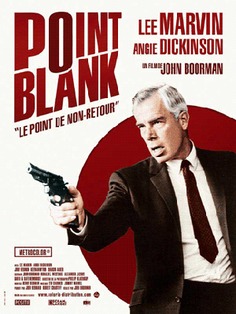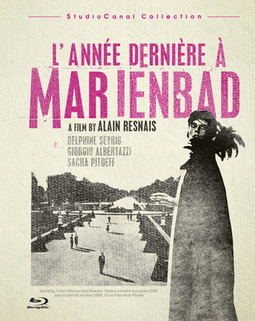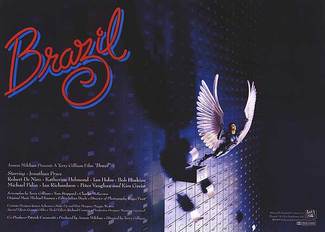|
70. Alien (1979) If you’re going to make a movie about a monster in outer space, this is the way to do it. The effects hold up marvelously and the cast is one of the best ever assembled, featuring Yaphet Kotto, Tom Skerritt, Veronica Cartwright, Ian Holm, Harry Dean Stanton, John Hurt, and of course a young Sigourney Weaver. 69. Through a Glass, Darkly (1961) I love The Seventh Seal and Persona as much as anyone, but this is one of the two films that really stay with me from Bergman. A typically dark drama about a brother/sister/father relationship, this film deals with spiritual issues unseen in most films – especially the notion that if there is a God, it may not have any human connection to us whatsoever. 68. Last Year at Marienbad (1961) Being a fan of the literary work of Alain Robbe-Grillet, I am probably more inclined to be patient with this film’s depiction of spiritual emptiness in wide shots of corridors. The director, Alain Resnais (who also made the celebrated Hiroshima Mon Amour) didn’t entirely share the author’s vision, but the film does evoke Robbe-Grillet’s style very effectively. Surreal, beautifully shot, and dreamlike in execution. 67. Point Blank (1967) John Boorman wore his New Wave influences openly in the making of this crime picture, resulting in a weird, sometimes choppy but compelling revenge drama. Lee Marvin walks through the film knocking down doors and knocking over people on his single-minded quest, which ends only in ambiguity. And the weird was just getting started for Boorman, who has one of the more unique filmographies around. 66. Cross of Iron (1977) A WWII picture with an unusual point of view: Sam Peckinpah’s distinctive style is applied to this drama about German soldiers on the Russian front. The film doesn’t deal with the war as such, but is down on the ground with the grunts, and what emerges is a macho battle between supersoldier Steiner (James Coburn) and his commander played by Maximilian Schell. For anyone needing an antidote to Saving Private Ryan, this is the one. 65. Brazil (1985) Terry Gilliam’s quasi-masterpiece is big, sprawling, not always on-point, but often brilliant and occasionally unforgettable. Gilliam has always been one of my favorite filmmakers because of his unique vision and indefatigable chutzpah. I may not love everything he makes, but – as with David Cronenberg – I always want to see his films. 64. Wild Strawberries (1957) Victor Sjostrom, as the elderly professor reflecting back on his life, gives a devastating performance; of all Bergman’s films, this one comes back to me most often. A meditation on God, life, the universe, and everything, but without the dreariness that description might suggest. Instead, this is a glorious film. 63. Strozek (1977) Werner Herzog, the legend, has made so many great films and documentaries that he – like Kubrick and Antonioni – would dominate this list if I didn’t arbitrarily set a limit. A dazzling critique of modern capitalism, and featuring one of the greatest ending sequences of any film ever made. 62. Au Revoir Les Enfants (1987) Louis Malle’s coming-of-age story set in WWII left me bawling for an hour afterward. I understand that doesn’t sound like a recommendation, but it is. 61. Red River (1948) Howard Hawks, my favorite American classic Hollywood director, cast John Wayne as the heavy in this brilliant Western. Montgomery Clift plays his prodigal “son,” and their conflict sets the table for this cowboy drama. The movie that caused John Ford to remark, “I didn’t know the sonofabitch could act,” about Wayne. Dazzling entertainment.
0 Comments
Your comment will be posted after it is approved.
Leave a Reply. |
AuthorThis is Joe Green's blog. Archives
August 2021
Categories |



 RSS Feed
RSS Feed
